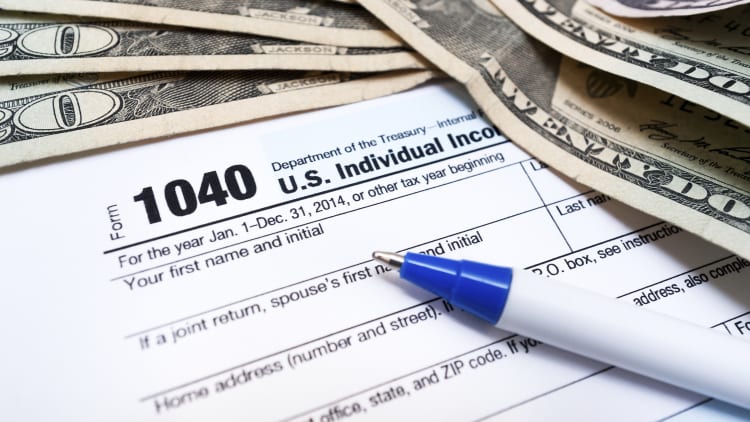Liberal economists call Republican plans to abolish the estate tax a costly giveaway to the rich, cloaked in rhetoric about saving family farms.
A bigger problem for Republicans: some conservative economists say the same thing about an even costlier tax break Congress wants to give some businesses, cloaked in rhetoric about mom-and-pop enterprises.
That costlier tax break is the 25 percent top tax rate for so-called pass-through, unincorporated businesses. Its critics say the main beneficiaries would be well-to-do business owners, who would gain even larger tax advantages over corporate counterparts than they enjoy already.
"There is no strong policy justification for the special pass-through rate in the GOP's plan," said Kyle Pomerleau, an analyst at the conservative Tax Foundation. Since pass-through earnings represent around one-third of all income for the top 1 percent of taxpayers, Pomerleau added, the provision tilts the plan's benefits toward the wealthy while favoring one kind of business over others.
The tax reform framework released by the White House and Congress would cut the top rate paid by American corporations to 20 percent from the current 35 percent. But owners of unincorporated pass-through businesses file under the individual tax code, which would have a top rate of at least 35 percent.

So the plan calls for a special pass-through rate of 25 percent in the name of helping "small and family-owned businesses." The $770 billion cost of that provision, according to a Tax Policy Center analysis, represents nearly one-third of all tax cuts under the plan.
Pass-through businesses already pay lower overall income tax rates than corporations, the profits of which are taxed a second time when distributed to shareholders as dividends. Pomerleau estimates the current GOP plan would widen that tax advantage to around 10 percent, from 7 percent currently.
Greg Mankiw, former top economist to President George W. Bush, calls it logical to cut pass-through business rates at the same time corporate rates would drop by nearly half. But he worries about tax avoidance by ordinary salary earners that would turn themselves into independent contractors just to get the lower pass-through rate.
After the 1986 tax reform dropped the top individual rate below the top corporate rate, many businesses unincorporated to take advantage. This time, Republican leaders say they'll draft rules preventing the wealthy from relabeling personal income as business income.
Most of the tax break would go to high-income Americans in any case. Though most businesses are pass-throughs, 81 percent of business profits come in the 1 percent of firms with at least $10 million in receipts, according to the Brookings Institution.
That includes pass-through businesses such as auto dealerships, hedge funds, law firms and fast food franchises. The Tax Policy Center says 88 percent of the benefit from a 25 percent pass-through rate would flow to the top 1 percent.
"It seems like a stretch" to invoke mom-and-pop businesses for the pass-through rate, observed Alan Cole, until recently a Tax Foundation analyst. Its existence owes more to the lobbying clout of "traditional Republican constituencies," he added, noting that Rotary Clubs and chambers of commerce organize pass-through businesses in each congressional district.
That makes the pass-through debate like the one over abolishing the estate tax. That 40 percent levy now applies only to estates of $5.5 million for an individual, or $11 million for a couple.
Republican proponents of abolishing it say that would protect heirs to family farms and other small business. But of just 5,200 estates that will owe estate taxes in 2017, the Tax Policy Center says only about 50 represent small farms or businesses; the top 10 percent of earners pay 90 percent of all estate taxes paid.
The $239 billion, 10-year cost of eliminating the estate tax, and who would reap the benefit, have prompted Republican as well as Democratic resistance. With the GOP needing to hold at least 50 of its 52 senators to pass tax reform, Sen. Mike Rounds of South Dakota says he wants to preserve the estate tax at some level. Sen. Susan Collins of Maine has previously opposed repeal.
Three times as expensive as eliminating the estate tax, the pass-through break could come under similar pressure as the Republicans adjust their plan in response to criticism.
Said Pomerleau, "They may want to think about scaling back this new preference."
WATCH: Buffett says it's a mistake for Trump to end the estate tax—here's how it could affect you



